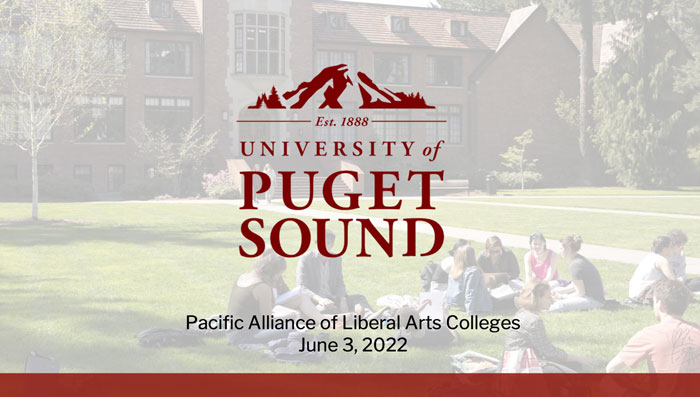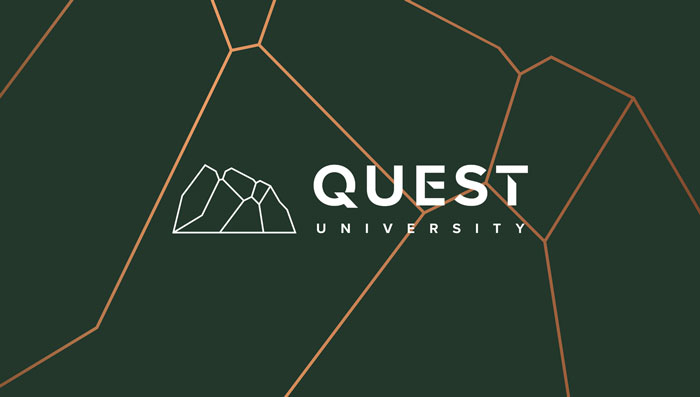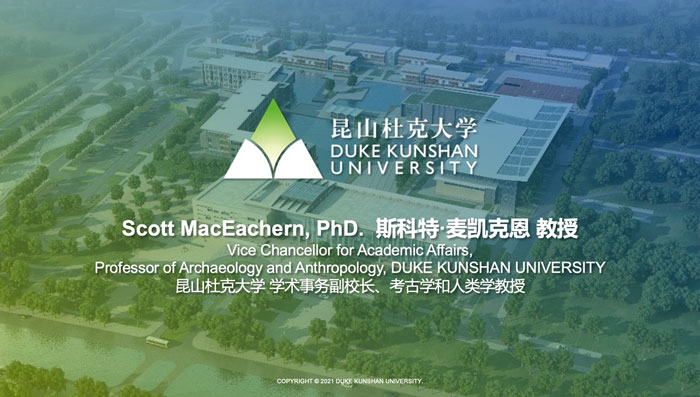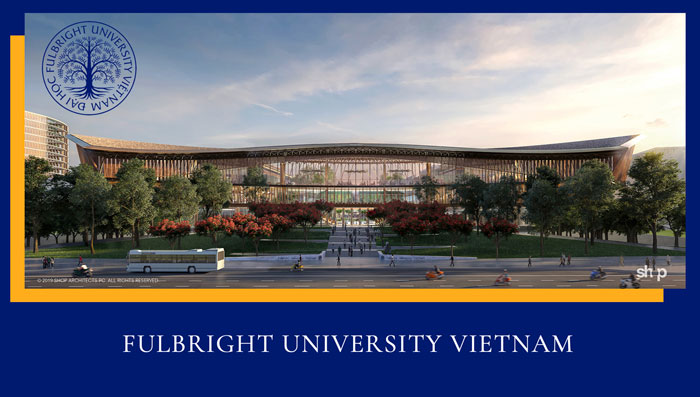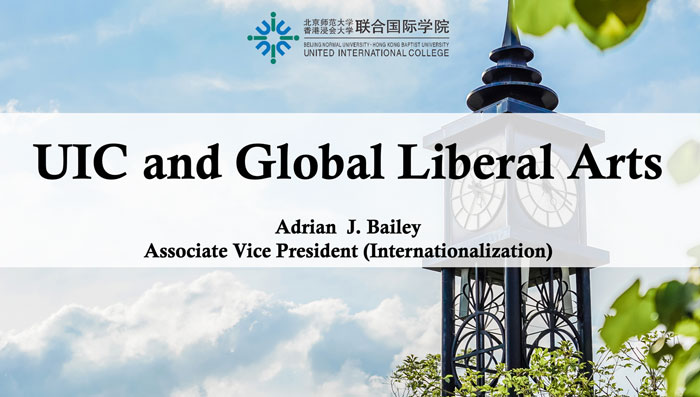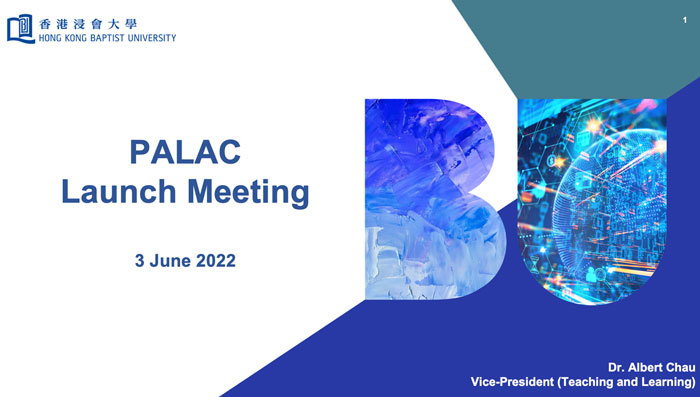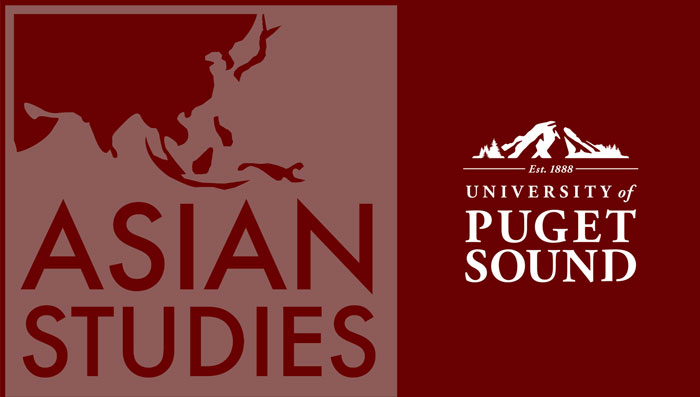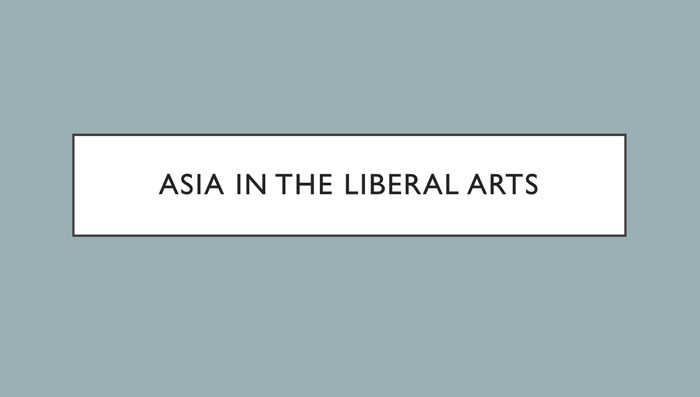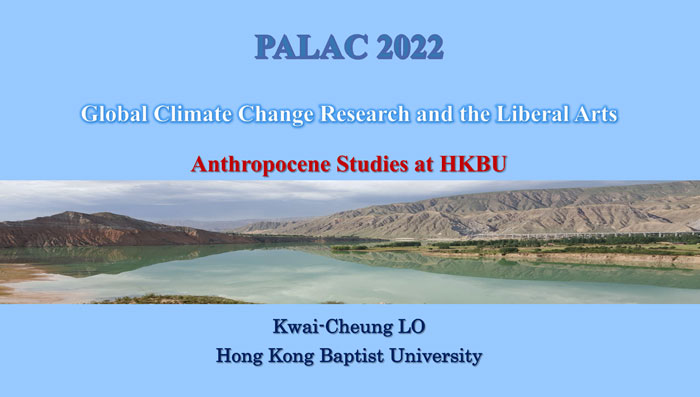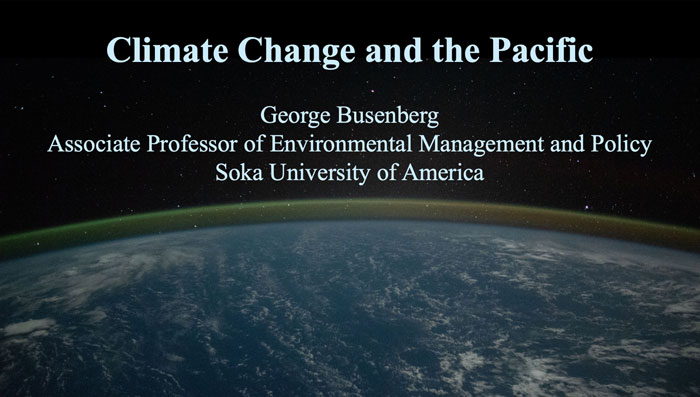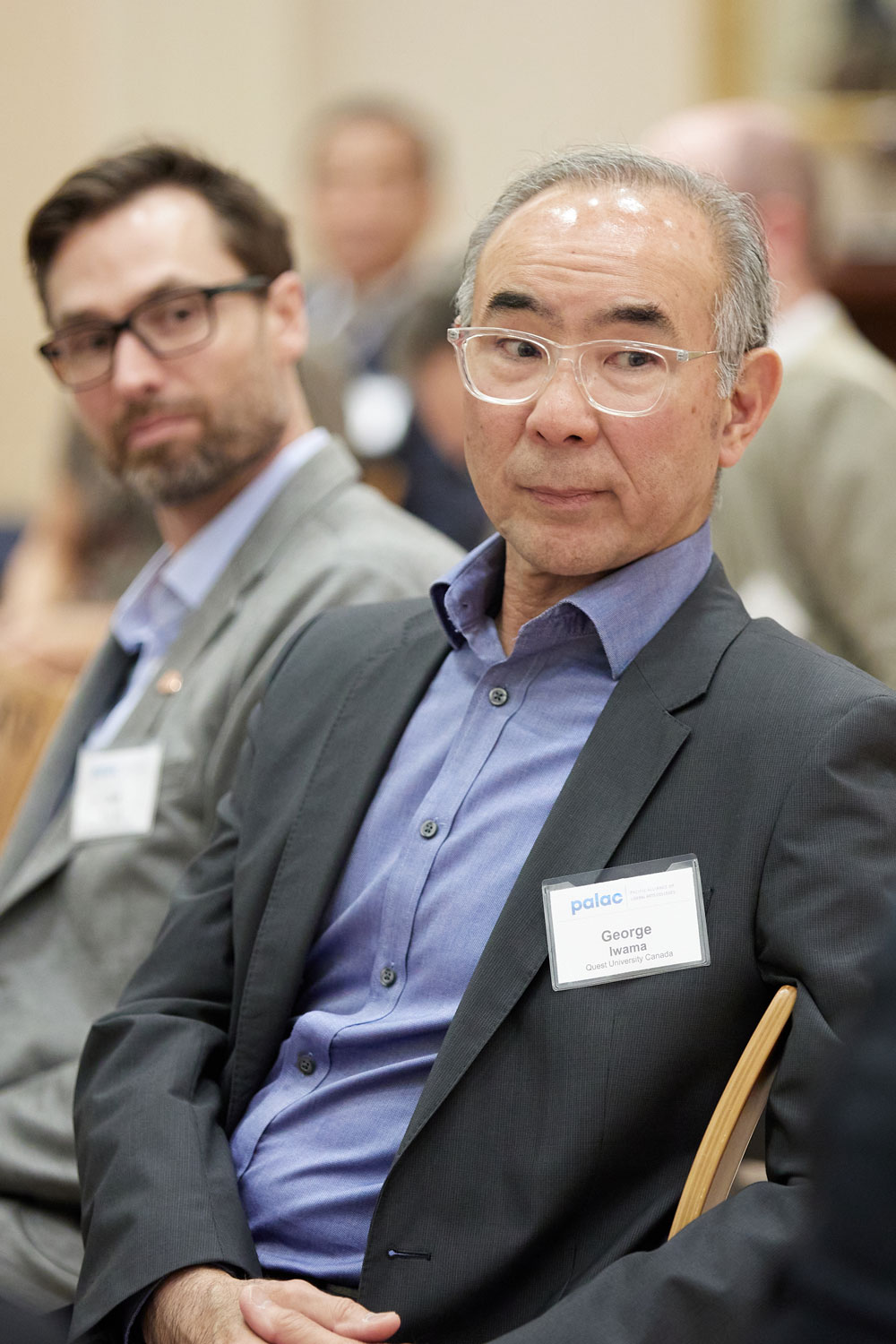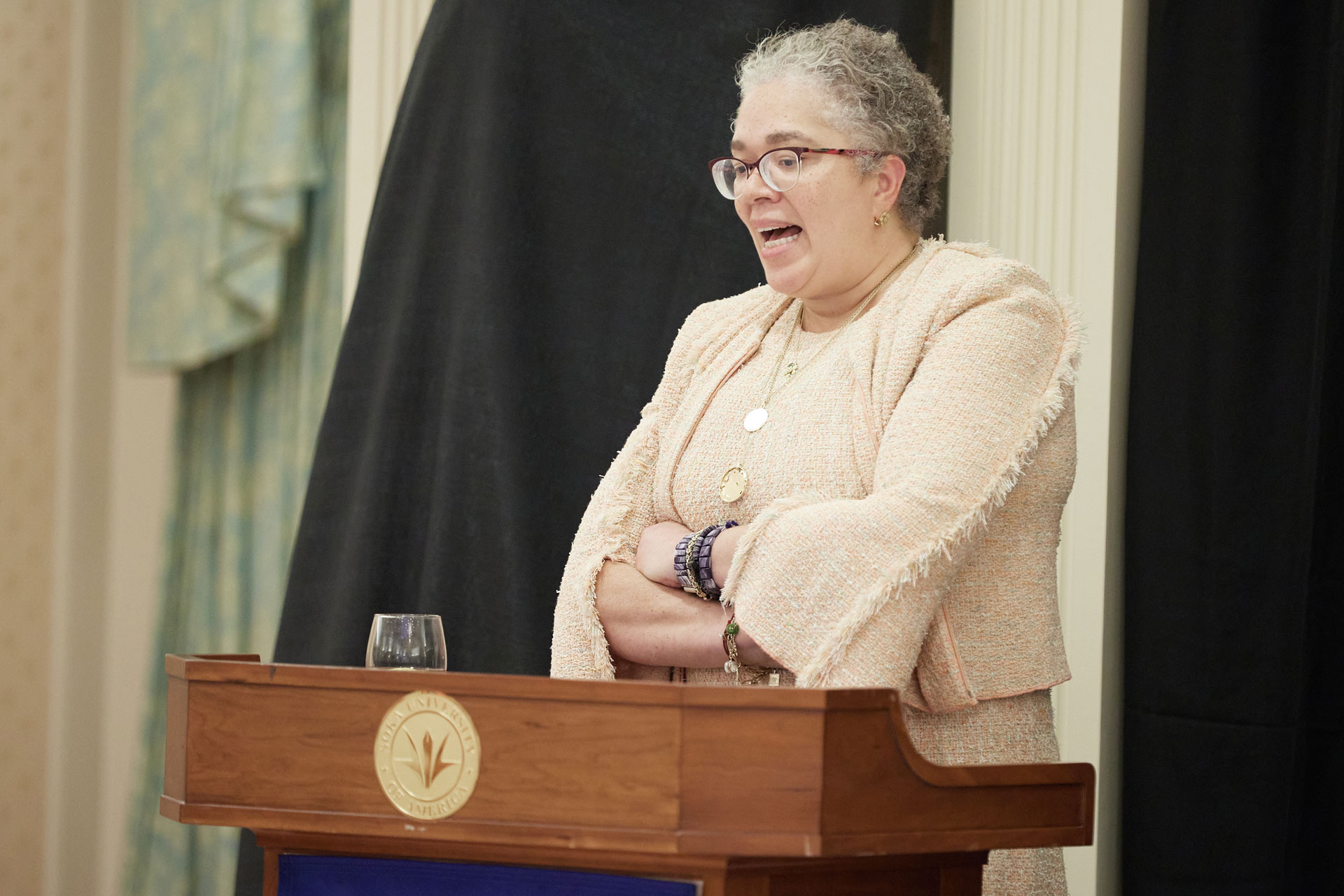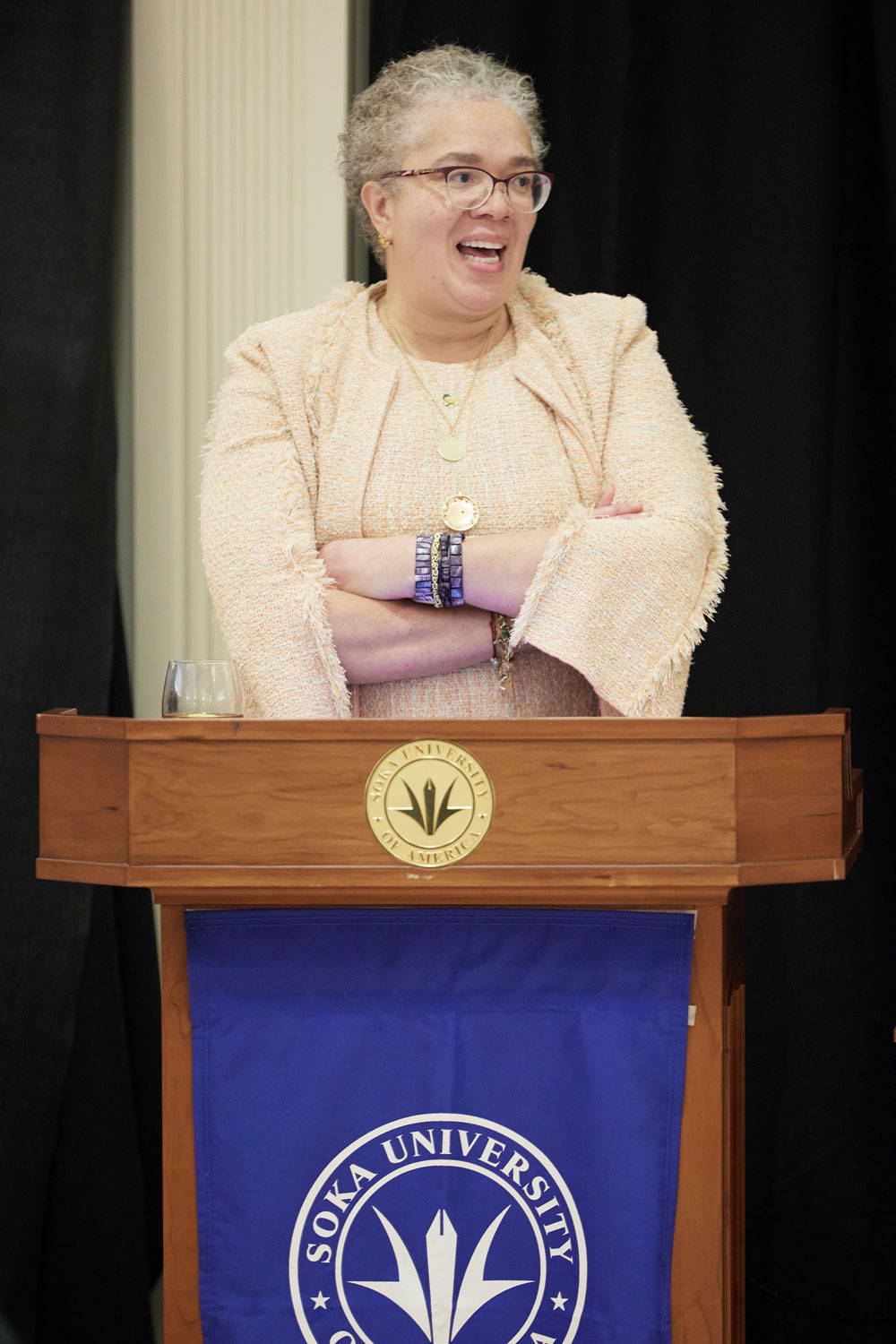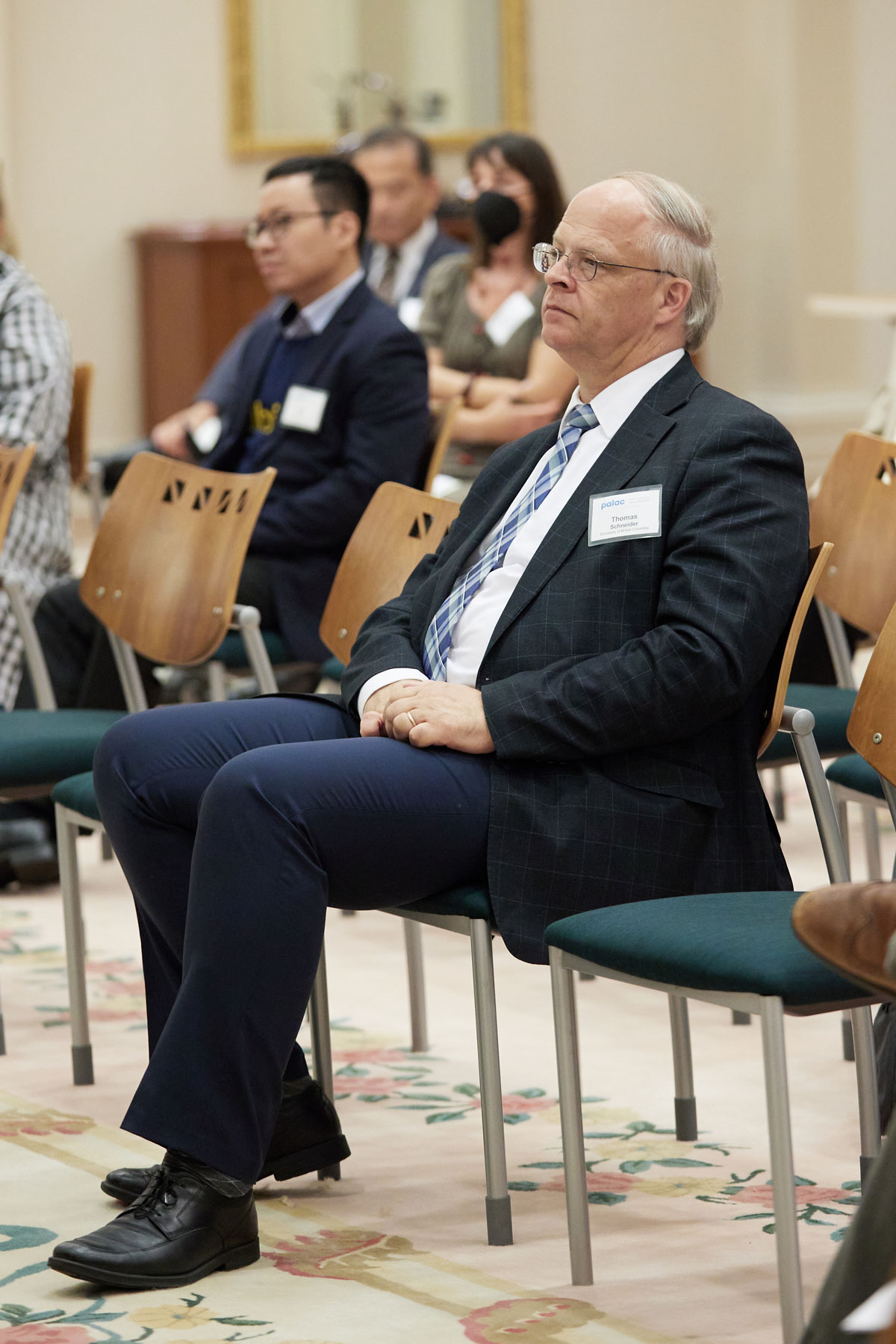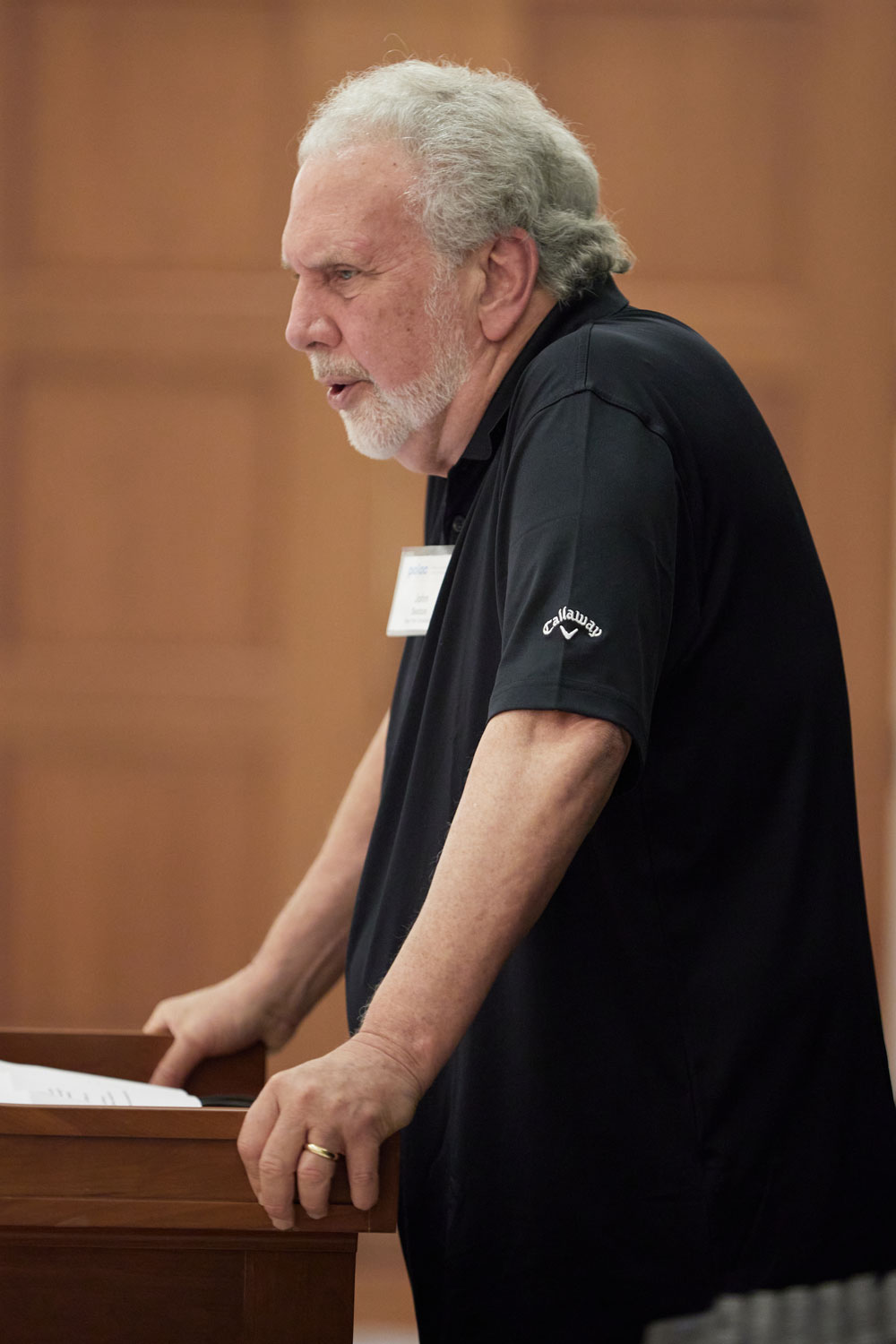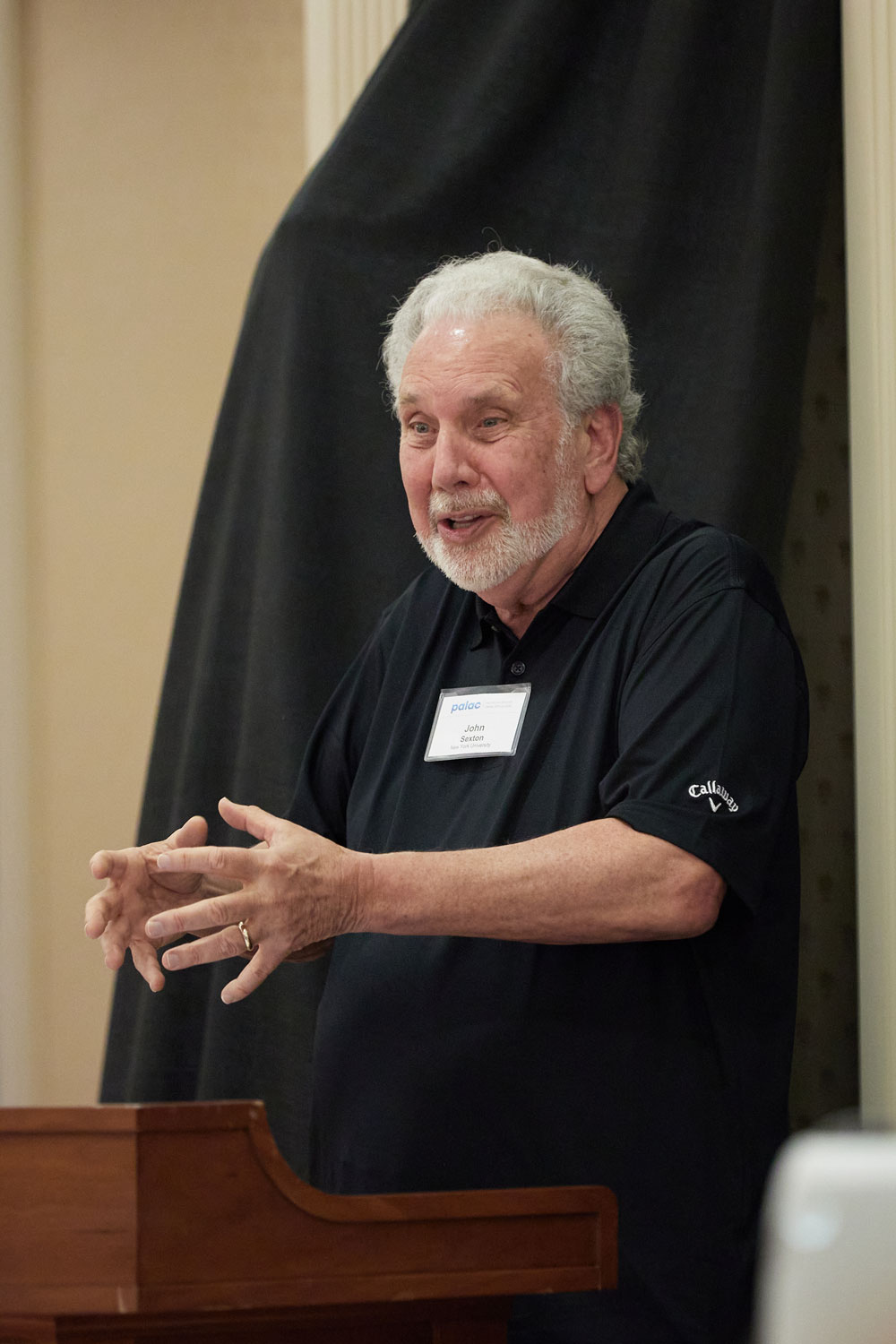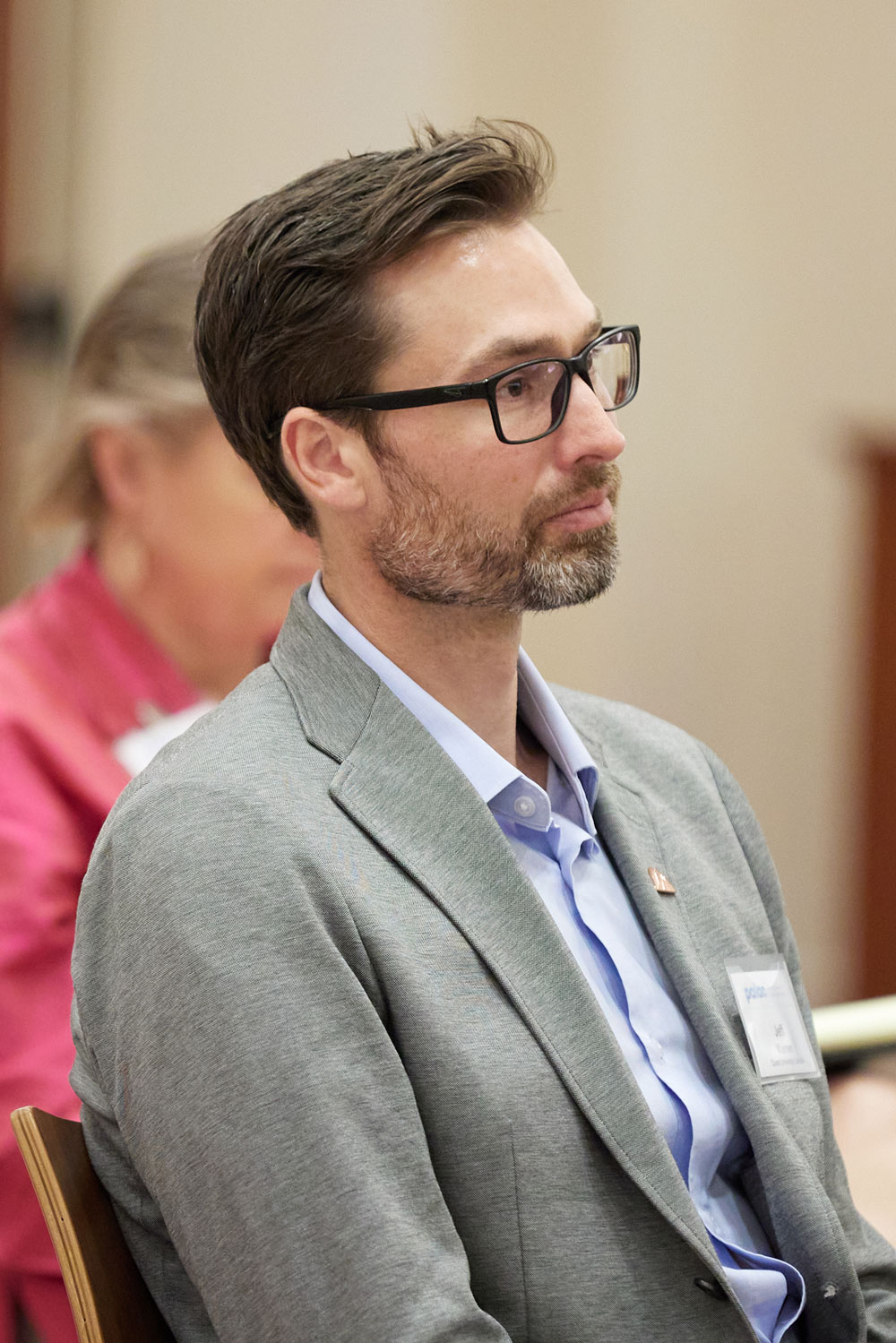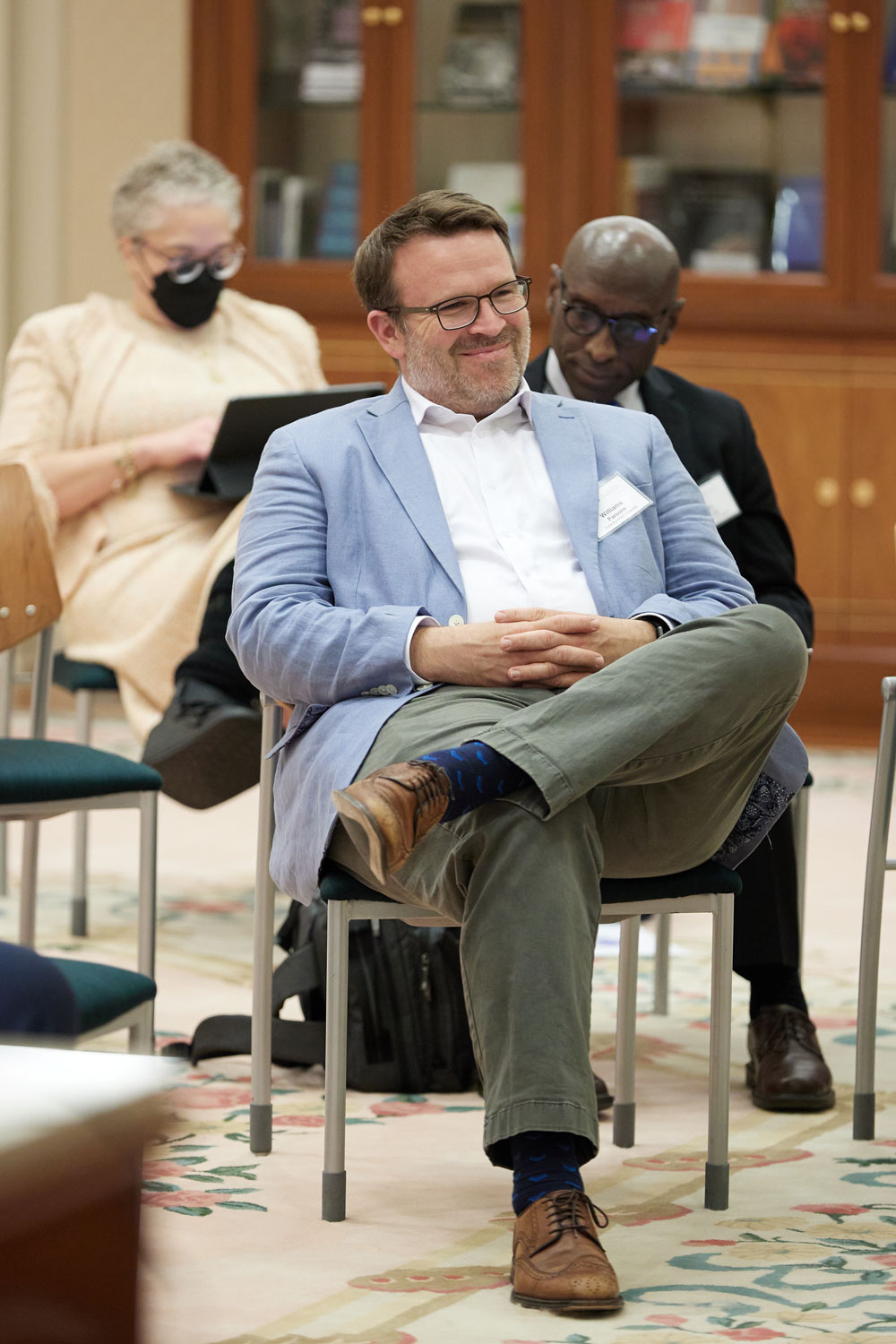Summary of PALAC meeting sessions
June 3 – afternoon sessions
Our meeting began with a Leadership lunch (12 noon), at which we had 12 representatives present, including Gabi Starr (President, Pomona), Laura Behling (Provost, UPS), George Iwama (outgoing President, Quest U.), Jeff Warren (CAO, Quest U.), Scott MacEachern (CAO, Duke Kunshan University), and Tran Vinh Linh (incoming Dean, Fulbright University Vietnam). Also at the lunch representing SUA and PALAC were Thomas Schneider, Bryan Penprase, Kevin Moncreif and Arch Asawa. During the lunch meeting we discussed some of the current issues at our institutions, and some initial ideas of how best to launch our PALAC and begin collaborative work. A campus tour led by Kentaro Shintaku followed (1:30 pm), and the group was joined by some of the faculty from University of Puget Sound. All were understandably impressed by the SUA campus and learned more about our founding and our history.
The formal academic presentations began in the afternoon (3:15 pm), after an introduction by Bryan Penprase and Thomas Schneider about the genesis and goals of PALAC. We featured 20-minute talks from all six of our institutions represented at the meeting (Soka, Puget Sound, Pomona, Quest, Duke Kunshan, FUV; 3:30-5:45 pm). The Powerpoint presentations from each institution are included on our website. The introductions to each PALAC institution included an overview of the curriculum, unique features and approaches to liberal arts in each institution, and some of the ways the institution could contribute to PALAC and also some of the issues that the institutions were wrestling with that might be helped by PALAC.
Among the institutional highlights from Soka University were the Learning Cluster program, new programs from the REHR center and our study abroad program. These components and others were described by Michael Weiner, the SUA VPAA. The Learning Cluster could be a mechanism for some visits to PALAC institution, and our SUA language programs could also benefit from online interactions with students and faculty at PALAC institutions. Laura Behling described some of the unique programs at UPS, including their Pacific Rim program (“PacRim”), which takes 12 students around the Pacific Basin over a full year and allows them to explore several countries. This program is being modified to be conducted over a semester to allow more students to access the program and to also include additional time abroad for internships and service learning. These programs could be aided by shared PALAC activities. Anne Dwyer described Pomona’s projects in advancing its global programs using the ACE internationalization laboratory, and how the renovated Oldenborg Center at Pomona will open up new possibilities for international partnerships and collaborative research on interdisciplinary topics. The new center could be a base for collaborative projects with PALAC and could also host meetings and visitors.
Jeff Warren introduced the meeting to the unique curriculum at Quest University, which is based on the 3.5-week block system, and the immersive and experiential learning at Quest University was described and discussed. Future experiential learning projects within PALAC could benefit from teaching workshops, and Quest University could also be a base for visiting students and faculty who might be able to benefit from their amazing location in Squamish, BC, in the midst of glaciers and fjords. Scott MacEachern described the academic program at Duke Kunshan University, which features and places emphasis on “rooted globalism” that is consistent with other PALAC institutions that are defining various ways of conceptualizing and educating students to become global citizens. The group discussed possible ways of bringing DKU students together on their campuses, and exchange programs, as well as faculty workshops that might help new faculty at DKU and other PALAC institutions learn new modes of interdisciplinary teaching. Tran Vinh Linh described the unique Fulbright Vietnam University curriculum, and especially interesting Vietnamese study programs that allow for in-depth immersion into the rich multicultural environment of Vietnam. As the youngest of our PALAC institutions, FUV would be happy to host experienced faculty to help share ideas on teaching, and also could benefit from partnerships with many of our institutions as they move beyond their launch phase into a new equilibrium phase.
June 3 – evening sessions
After dinner, Arch Asawa introduced the group to Soka University of America and its founding by Daisaku Ikeda. He also outlined some aspects of Soka education, and its origins in pre-war Japan from Tsunesaburo Makiguchi, who began Soka education with an emphasis on the interconnectedness of all people and an emphasis on the happiness of students. Our keynote speaker, John Sexton, implored us to appreciate our roles in shaping the future of global higher education, and also congratulated us on our PALAC alliance and its potential to shape a more global sensibility in liberal arts that can help solve urgent world problems. Throughout the meeting there was an awareness that our world may be in an inflection point, and the PALAC alliance can help our institutions and the larger world study and respond to the epochal changes in our environment, our societies, and our shared sense of humanity that is emerging. As Sexton had shaped the NYU Global Portal campuses, he was aware of the importance of “circulation” among faculty and students to promote a more vibrant and global culture in higher education, and he encouraged us to work out some arrangements to enable our students and faculty to visit and be exchanged among our PALAC institutions.
A second keynote talk by Gabi Starr of Pomona described how the new ACE internationalization efforts at Pomona promise to help foster greater interdisciplinarity and global approaches and urged us all to consider ways to foster these approaches at our institutions. One idea she mentioned was the idea of convening groups of faculty and students on our campuses to be based in a single location to study and work on a single project of global importance. These short-term and intensive collaborations in many ways are like a study abroad, in that they remove faculty and students from their prior disciplinary-based cultures and allow them to focus entirely on an interdisciplinary project such as working on global climate change or perhaps other UN SDG’s.
After outlining briefly how to set up the Working Groups for June 4, the final session of the first day consisted of presentations via Zoom of those member institutions who could not participate in person. Adrian John Bailey (UIC), John Robertson (NYU-Shanghai) and Albert Chau (HKBU) each gave an overview of the history of their institutions and their academic profiles, including the specific Chinese complements characterizing their liberal arts education (whole person education including elements such as archery, charioteering, rituals at UIC; or the unique research cluster on traditional Chinese medicine at HKBU). Albert Chau also devoted some time to propose a ‘PALAC hackathon’ as a project idea.
June 4 – morning discussion
The morning session of June 4 was devoted to an informal group discussion of all in-person participants with John Sexton about the future of Liberal Arts. The exchange of ideas included the potential setup of PALAC as a circulatory system (on the model of NYU) and a broader discussion about the purpose (ratio studiorum) and need for universities to reconfigure in the 21st century.
June 4 – afternoon presentations
Two afternoon sessions (1-2 pm and 4-4:40 pm) included four special topics relating to the status of the liberal arts in the Asia-Pacific and particular projects. Gareth Barkin (Puget Sound; “Un-COIL-ing Virtual Study Abroad and Unsettling Geographies of Power”) introduced the audience to the pedagogical format of Collaborative Online International Learning as implemented by SUNY. This model involves shared learning between students at two global partner institutions, facilitated by faculty members at both institutions who design collaborative activities for their students. This gives the students a certain degree of virtual global exposure and engagement despite being based at their home institutions. Jonathan Stockdale (Puget Sound; “Asia in the American Liberal Arts”) provided a reflection on the significance of Asian cultures in the liberal arts education of the US. Two presentations focused on climate change research. Lo Kwai Cheung (HKBU; “Global Climate Change Research and the Liberal Arts”) presented a critical assessment of climate challenges from a Chinese perspective, including geoengineering by the People’s Republic of China. George Busenberg (Soka; “Climate Change and the Pacific”) presented the idea of an outreach project that would make materials and data on climate change accessible in a reliable, web-based format (“Pacific Environmental Project”).
June 4 – afternoon working groups
From 2:30-4 pm, the attendees split into two working groups for an hour of discussions and then reported back to the plenum.
(1) Working group on global climate change and migration and marginalized communities
This discussion merged two different topics but identified some important synergies between global climate change and the disproportionate impact these changes are having on marginalized communities around the Pacific region.
The group discussed a number of specific research and teaching topics related to marginalized communities that would be of interest to all PALAC institutions, and which could be realized through a coordinated effort that could include field studies in the regions within PALAC, and which could be a rich area of research.
- Specific communities that were discussed include the various non-Han Chinese groups within mainland China, such as the Yi people who were visited by an SUA learning cluster in early 2020, as well as other groups within China.
- The 53 linguistic communities within Vietnam would also be of interest, and the special impacts within Vietnam and within the Mekong delta from global climate change would be of great interest.
- Several North American institutions expressed interest in developing strong connections with the Native American people that live within their regions; this included the Puyallup people near UPS, the Squamish people near Quest University Canada and the Acjachemen nation near Soka University of America. Pomona College has also developed strong connections with the Tongva community and a joint effort studying the ways in which First Peoples had stewarded the land could be of interest in studying greater sustainability.
- The group also noted that the burgeoning population centers near all of our campuses are both causes of global climate change and strongly affected by the impacts of these changes. A rich study based on this topic could include both a focus on sustainable cities and providing more equitable living conditions for populations within our cities. Such research would also meet multiple UN Sustainable Development goals to advance marginalized communities, including SDG 1 (No poverty), SDG6 (Clean water and sanitation), SDG 8 (Decent work and economic growth), SDG 10 (reduced inequalities), in addition to other goals more directly related to global climate change such as SDG7 (Affordable and Clean Energy), SDG13 (Climate Action) and SDG 15 (Life on Land).
- Social science research within communities in the regions of our campuses could also be a rich area for faculty and student study; this could include both diaspora communities and native communities and would offer opportunities for intercultural experience in the vicinity of our campuses that could enrich the experiences of students and could also be shared at relatively low costs between PALAC institutions.
The working group also explored ways in which a joint effort in research and teaching in global climate change science could be of interest. The opportunities for collective effort among the PALAC institutions would expand our expertise and impact and would offer a great opportunity for students and faculty research. Some specific ideas that were discussed include:
- Shared resources related to teaching global climate change. These could include classroom units, datasets and even field sites which are in environmentally sensitive areas.
- Case studies on global climate change that could be developed separately by individual PALAC institutions and then shared to bring a series of case studies into the classroom that are based on extensive field research and which could also offer exchange possibilities, either virtual or in-person.
- A website for coordinating data gathering and also for interpreting major NASA datasets on global climate change. This topic was the subject of a talk by George Busenberg (SUA) and could be a visible and impactful research and teaching resource from our PALAC institutions.
(2) Working group on exchanges (notes courtesy of Gareth Barkin, UPS)
- We mostly discussed the faculty exchange idea that had already come up as a prospect in earlier conversations about PALAC possibilities.
- The discussion revolved around semester or year-long faculty exchanges (rather than shorter ‘blocks’ since we imagined those would depend greatly on calendar compatibility, though we certainly weren’t ruling them out).
- We discussed the idea of a “job market website” in which different PALAC member institutions could post either ‘vacancies’ they’d be interested in having another institution’s faculty potentially filling, or (more likely) faculty who are interested in participating in a faculty exchange, along with their expertise and the PALAC members they’d be open to.
- We discussed how such a website would work from the perspective of institutional approval (e.g. Pres. Sexton’s warning about ‘the dregs’ clogging up the circulatory system) and whether provosts / academic vice presidents would approve of listings, or approve at a later stage after connections had been made.
- Our initial discussion revolved around 1:1 exchanges in which two faculty members from different institutions would change places (though not necessarily teaching similar material or in the same departments). Questions this raised:
- Housing and moving costs – some institutions had faculty housing that might work; others didn’t and were in expensive real estate markets. The idea of faculty literally switching houses came up, though then family size became a variable (e.g. a family of four likely wouldn’t be able to switch with a single faculty member living in a one-bedroom).
- Salary concerns: would guest faculty be paid by their home institution or the host institution? What salary would they receive? Some working in China are apparently receiving generous expat packages that they might be reluctant to part with.
- But if home institutions are paying exchange faculty salaries, how would that work with labor and visa regulations?
- Could those concerns be alleviated by having home institutions make a one-time “buy out” payment to host institutions to cover their salaries/benefits (which would then be handled by the host institution, to comply with labor laws)? Williams said he’d check with his HR office.
- We also discussed the teaching load of visiting faculty, and tentatively agreed that (1) these exchanges should not be substitutes for sabbatical and instead should be teaching-focused, but that (2) visiting faculty should likely get some break in the conventional teaching load to allow them to adjust and participate fully in campus life.
- We also discussed the possibility of different faculty exchange models, including some institutions (particularly those with the means to cover a potentially-senior visiting faculty member’s salary) potentially hiring / buying out PALAC faculty members from other institutions for a semester or a year.
- This would not be an exchange and would likely mean, most commonly, faculty from tuition-dependent schools traveling to schools with greater means.
- We also discussed the internationalization benefits of broadening faculty experiences of Asia and the world, and how that would help their home institutions if less directly than participating in 1:1 exchanges.
- Toward the end of our session, the prospect of COILs and student-focused cultural exchanges came up. Thomas suggested that, because Hong Kong Baptist has a lot of experience in such activities, that we should wait to explore that field until they can be part of the conversation.
Next steps for Implementation of the PALAC Alliance
(1) Alliance governance and procedures
We will develop more specific arrangements for coordinating our efforts and beginning to implement our projects. For this a clearly described mechanism for advancing proposals and projects, and seeking external funding will need to be developed. Specific steps related to this area include the following:
- Discussion of the nature of the consortium and drafting of a mission statement
- Clarification of areas where we can share experiences and provide mutual support
- Establishment of a governance and participation structure (charter, bylaws)
- Identify the level of support (financial, administrative, etc.) available
- Plan for projects and their implementation
(2) Specific projects
As we begin to launch PALAC in the coming year, there are many specific projects that would benefit from our PALAC collaborations. Some, such as the Hackathon and shared online courses, could be done completely remotely using technology. Leveraging our knowledge of these technologies that was developed during the COVID period could be a great mechanism for strengthening the alliance. We also discussed the benefits of in-person interactions, and decided that these types of interpersonal interactions between students and between faculty are essential for advancing our intercultural understanding and building our PALAC community. The specific projects in both categories are listed below:
Collaborative instruction
- Hackathon bringing students together across PALAC to work on topics of mutual interest, perhaps related to SDGs.
- Collaborative Online International Learning (COIL) courses for exchange (could include both synchronous and asynchronous coordinated courses).
- Collaborative offerings for Summer courses among PALAC institutions (could be a mix of in-person and virtual experiences).
Exchange
- Faculty exchanges for short-term teaching and for sabbatical
- Coordinated efforts within PALAC administration for sharing experiences and solutions
- Student exchange programs for experiential learning in Jan. term and short immersions as well as semesters
Research collaboration
- Coordinated development of case studies of environmental changes in our regions with impacts on marginalized communities
PALAC meeting Attendees
In-Person Attendees:
| Name |
Institution |
Title |
Email Address |
| Gareth Barkin |
University of Puget Sound |
Professor of Anthropology |
barkin@pugetsound.edu |
| Laura Behling |
University of Puget Sound |
Provost |
lbehling@pugetsound.edu |
| George Busenberg |
Soka University of America |
Associate Professor of Environmental Management and Policy |
gbusenberg@soka.edu |
| Anne Dwyer |
Pomona College |
Associate Dean (International Initiatives) |
anne.dwyer@pomona.edu |
| George Iwama |
Quest University Canada |
President |
george.iwama@questu.ca |
| Junyi Liu |
Soka University of America |
PhD, Associate Professor of Economics |
jliu@soka.edu |
| Yu Luo |
University of Puget Sound |
Assistant Professor of Anthropology and Contemporary China Studies |
yluo@pugetsound.edu |
| Scott MacEachern |
Duke Kunshan University |
Vice Chancellor for Academic Affairs |
scott.maceachern
@dukekunshan.edu |
| Kevin W. Moncrief |
Soka University of America |
Vice President of Mission Integration |
kmoncrief@soka.edu |
| William Parsons |
Duke Kunshan University |
Associate Dean of Undergraduate Curricular Affairs |
wbp6@duke.edu |
| Bryan Penprase |
Soka University of America |
Vice President for Sponsored Research and External Academic Relations |
bpenprase@soka.edu |
| Anne Pearce |
Soka University of America |
Associate Professor of Studio Art; Director of Creative Arts Program |
apearce@soka.edu |
| Thomas Schneider |
University of British Columbia |
Executive Director, PALAC |
thomas.schneider@ubc.ca |
| John Sexton |
New York University |
President Emeritus |
ng20@nyu.edu |
| Sandrine Simeon |
Soka University of America |
Assistant Professor of French Language and Culture; Director of the Language and Culture Program |
ssimeon@soka.edu |
| G. Gabrielle Starr |
Pomona College |
President |
president@pomona.edu |
| Jonathan Stockdale |
University of Puget Sound |
Professor, Religion, Spirituality and Society |
jstockdale@pugetsound.edu |
| Linh Tran |
Fulbright University Vietnam |
Acting Dean of Undergraduate Studies |
linh.tran@fulbright.edu.vn |
| Jeff Warren |
Quest University Canada |
Vice President Academic |
jeff.warren@questu.ca |
| Michael Weiner |
Soka University of America |
Vice President for Academic Affairs |
mweiner@soka.edu |
Online Attendees:
| Name |
Institution |
Title |
Email Address |
| Adrian Bailey |
BNU-HKBU UIC |
Associate Vice President (Internationalization) |
bailey@uic.edu.cn |
| Albert Chau |
Hong Kong Baptist University |
Vice-President (Teaching and Learning) |
albertchau@hkbu.edu.hk |
| Zhan Chen |
BNU-HKBU UIC |
Assistant Professor |
chenzhan4321@hotmail.com |
| Lo Kwai Cheung |
Hong Kong Baptist University |
Professor |
kwaiclo@hkbu.edu.hk |
| William Kwok-Wai Cheung |
Hong Kong Baptist University |
Associate Vice President (Undergraduate Programmes) |
william@comp.jkbu.edu.hkk |
| Sebastian Dziallas |
Fulbright University Vietnam |
Founding Faculty Member |
sebastian@sdziallas.com |
| Martina Ebert |
Pomona College |
Sr. Director, Foundation Relations and Strategic Initiatives |
martina.ebert@pomona.edu |
| Marcia France |
Duke Kunshan University |
Associate Vice Chancellor of Undergraduate Studies |
marcia.b.france
@dukekunshan.edu |
| Diane Geng |
NYU Shanghai |
Associate Dean for Academic Affairs |
diane.geng@nyu.edu |
| Haipeng Guo |
BNU-HKBU UIC |
Professor |
hpguo@uic.edu.cn |
| Alison Lloyd |
Hong Kong Baptist University |
Associate Vice President |
alisonlloyd@hkbu.edu.hk |
| Yi-Lung Kuo |
BNU-HKBU UIC |
Director of Centre for Teaching and Learning |
yilungkuo@uic.edu.cn |
| John Robertson |
NYU Shanghai |
Associate Provost for Academic Affairs |
jgr7@nyu.edu |
| Arina Rotaru |
BNU-HKBU UIC |
Assistant Professor of General Education and Foreign Languages and Cultures |
arina.rotaru@gmail.com |
| Lauren Sinclair |
NYU Shanghai |
Assistant Dean, Academic Affairs |
lauren.sinclair@nyu.edu |
| Nora Taylor |
Fulbright University Vietnam |
Provost |
nora.taylor@fulbright.edu.vn |
| Katharina Yu |
BNU-HKBU UIC |
Director IDO |
katharinayu@uic.edu.cn |
Meeting Agenda
Friday, June 3 – Venue: Athenaeum, Soka University of America (hybrid format, all times PDT).
11:30AM – Soka Shuttle departs Homewood Suites for Soka
12:00PM – Leadership Buffet Lunch (Athenaeum Dining Room)
Presidents and CAOs (Invitation only)
1:30PM – Campus walking tour of SUA (open to all, Founders Hall Lobby)
2:00PM – Soka Shuttle departs Homewood Suites for Soka
2:30PM – Registration and Networking (Athenaeum Courtyard)
3:15PM – Welcome and Conference overview (Athenaeum Main Hall)
- Bryan Penprase, Vice President, Sponsored Research and External Academic Relations, Soka University of America
- Thomas Schneider, Executive Director, Pacific Alliance of Liberal Arts Colleges
3:30PM – Session 1 | Introduction to PALAC institutions and their unique approaches to Liberal Arts
Speakers:
- Michael Weiner, Vice President, Academic Affairs, Soka University of America
- Laura Behling, Provost, University of Puget Sound
- Anne Dwyer, Associate Dean of the College, Pomona College
4:30PM – Break – Coffee & Refreshments (Athenaeum Room 119)
4:45PM – Session 2 | Introduction to PALAC institutions continued (Athenaeum Main Hall)
Speakers:
- Jeff Warren, Vice President Academic, and George Iwama, President Emeritus, Quest University Canada
- Scott MacEachern, Vice-Chancellor for Academic Affairs, Duke Kunshan University
- Tran Vinh Linh, Acting Dean, Fulbright University Vietnam
5:45PM – Break
6:00PM – Buffet Dinner (Athenaeum Dining Room)
7:00PM – Welcome and Introduction to Evening Session (Athenaeum Main Hall)
- Arch Asawa, Vice President, Finance and Administration, Soka University of America
- Bryan Penprase, Vice President, Sponsored Research and External Academic Relations, Soka University of America
- Thomas Schneider, Executive Director, Pacific Alliance of Liberal Arts Colleges
7:15PM – Session 3 | Plenary Keynote Talk
“A Twenty-First Century Case for a Liberal Arts Education”
John Sexton, President Emeritus, New York University
8:15PM – Keynote talk
“Working Across Oceans – and Academic Disciplines”
Gabi Starr, President, Pomona College
8:30PM – Break
8:45PM – Introduction to Working Groups
Global Climate Change and Liberal Arts
Education and Research
9:00PM – Session 4 | Introduction to PALAC institutions by Zoom
Speakers:
- Adrian John Bailey, Associate Vice President (Internationalization), United International College
- John Robertson, Associate Provost for Academic Affairs, NYU Shanghai
- Albert Chau, Vice-President, Teaching and Learning, Hong Kong Baptist University
10:00PM – Adjourn
10:15PM – Soka Shuttle departs Soka for Homewood Suites
Saturday, June 4 – Venue: Athenaeum (hybrid format – all times PDT)
9:30AM – Soka Shuttle departs Homewood Suites for Soka
10:00AM – Informal Group Discussion with John Sexton (Athenaeum Main Hall)
The future of Liberal Arts
11:30AM – Soka Shuttle departs Homewood Suites for Soka
12:00PM – Lunch (Athenaeum Dining Room)
1:00PM – Working Group Discussion (Athenaeum Main Hall)
New Projects for PALAC – Global Citizenship, SDG research, Global Climate Change
Speakers: Special Topics for PALAC
- “Un-COIL-ing Virtual Study Abroad and Unsettling Geographies of Power”
Gareth Barkin, Professor of Anthropology, University of Puget Sound
- “The Role of Asia in the American Liberal Arts”
Jonathan Stockdale, Director, Asian Studies, University of Puget Sound
- “The Genesis and Development of Global Citizenship Education and a Race, Ethnicity and Human Rights Center”
Kevin Moncrief, Vice President, Mission Integration, Soka University of America
2:00PM – Break
2:15PM – Working Group Meetings (Athenaeum Library and Room 119)
3:30PM – Session 5 | Report Out from Working Groups (Athenaeum Main Hall)
4:00PM – Speakers: Special Topics for PALAC
- “Global Climate Change Research and the Liberal Arts”
Lo Kwai Cheung, Professor of Humanities and Anthropocene Studies, Hong Kong Baptist University (via Zoom)
- “Climate Change and the Pacific”
George Busenberg, Associate Professor of Environmental Management and Policy, Soka University of America
4:40PM – Discussion
5:00PM – Adjourn
5:15PM – Soka Shuttle departs Soka for Homewood Suites
